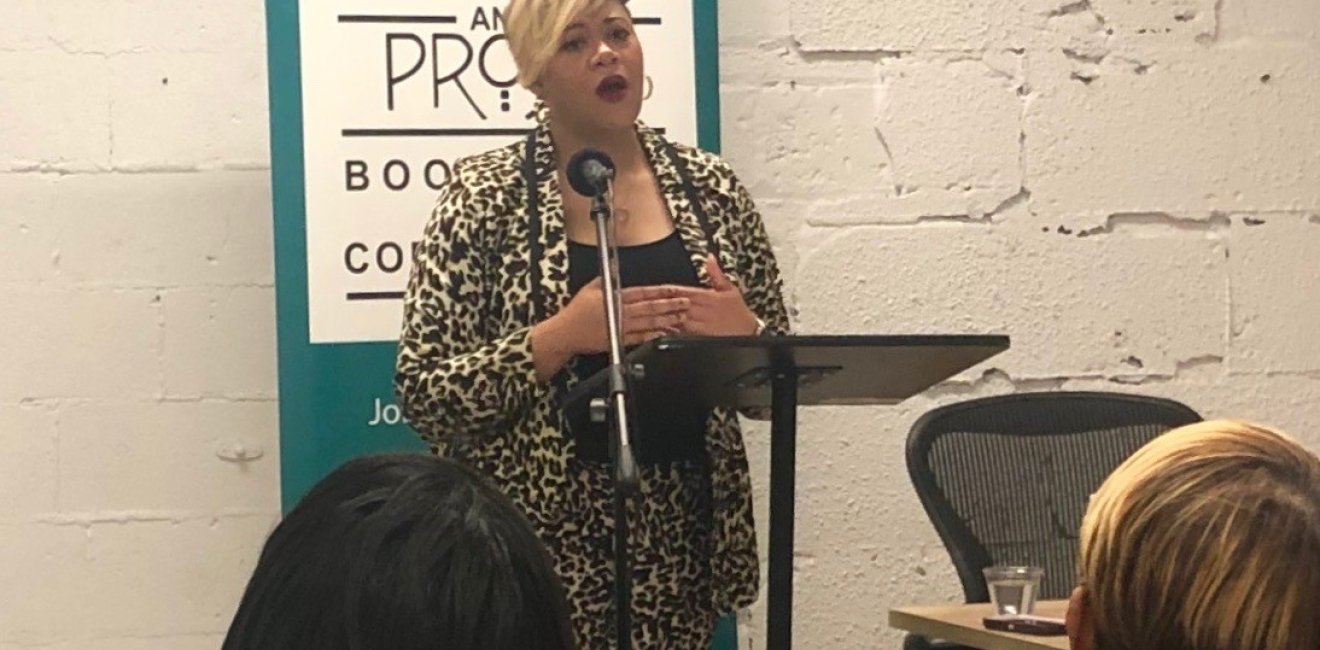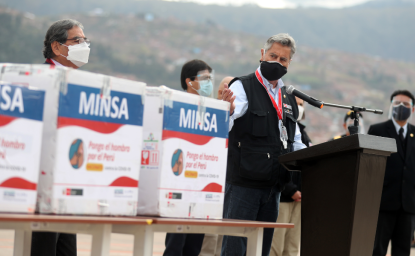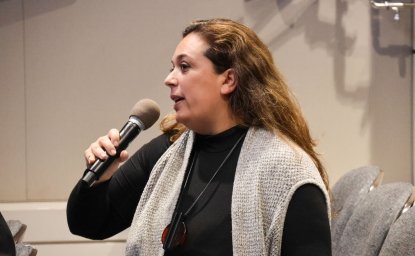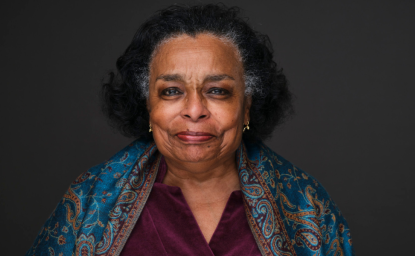
A blog of the Wilson Center

Dr. Niambi Carter’s research isn’t just about race. She studies what it means to be Black, how identity is shaped by history, and how migration and political power intersect in ways that transcend borders.
She investigates humanity.
From her childhood in Prince George’s County, Maryland, to her work at the Wilson Center, Carter’s path was shaped by a deeply personal commitment to understanding Black politics, immigration, and identity—both in the US and abroad.
Growing up, Carter was immersed in the narratives of Black struggle, triumph, and resistance. “Our bookshelves were filled with biographies,” she recalls. “Nelson Mandela, Malcolm X, women in the civil rights struggle—these were the voices that shaped my thinking.”
But it wasn’t just the books; it was the stories her parents and grandparents shared about their lives growing up under segregation that sparked her interest in broader political questions of race and citizenship.
Carter's parents, who lived through Jim Crow, were living proof of the transformative power of political change. “My parents went from not being able to vote, not being full citizens, to being able to vote by [age] 18, how does that happen?” This question, and all that it represents, continues to drive her research.
How do systems of power shift, and how do people adapt to these changes? “The experiences of Black people, both domestically and globally, are complex,” she says. “Our identities are shaped by the intersection of historical struggles and contemporary political realities.”
Though Carter’s early academic interests centered on race in the US, her perspective shifted when she began exploring immigration in graduate school. She credits a key mentor, Paul McLean, for sparking her interest in North Carolina’s growing Latino population. That research led her to question how Black Americans view immigration. “We often assume that Black people are not interested in these questions,” she says. “But I think they are, it just looks different.”
In her own community, where many of her friends were children of immigrants from places like Sierra Leone, Ethiopia, and the Caribbean, the issues of migration were part of their lives, just not always in the way they were framed in political discourse. “We’re all connected by these movements, these journeys, whether they’re internal migrations or ones that cross borders.”
Carter’s current research centers on Haiti, particularly US involvement in the island nation between 1915 and 1934. She explores how American actions during that time altered Haiti’s political and economic trajectory and contributed to the crisis the country faces today. “The international is always part of the domestic when it comes to Black politics,” she says, explaining that US foreign policy has always shaped the experiences of Black communities worldwide.
Her work at the Wilson Center, where she initially felt her Americanist background might not align with the institution’s focus on international relations, helped broaden her perspective. “I didn’t think I belonged,” she admits. “But the interdisciplinary nature of the Wilson Center allowed me to connect with scholars whose work spanned the globe.” There, Carter saw how global issues can’t be separated from domestic issues, especially when it comes to race and identity.
For Carter, the heart of her work is about making space for the full range of Black experiences. “Black people are just people,” she says. “We should be allowed to have the full scope of humanity represented in our communities.”
By examining the intersections of race, immigration, and politics, Carter encourages us to rethink how we understand identity. It’s through this lens that her research provides a compelling narrative, not just about the struggles of Black people, but about how those struggles are tied to a broader, global story that continues to unfold in unexpected and impactful ways.
This blog was researched and drafted by Marzia Zunino.
Explore More in Scholar & Alumni Spotlight
Browse Scholar & Alumni Spotlight
Dr. Guadalupe Correa-Cabrera: Crossing Borders in Research and Policy

Former Peruvian President Francisco Sagasti: Academic Turned Politician

Dr. Renata Giannini: Women’s Roles in Mitigating Climate Change
